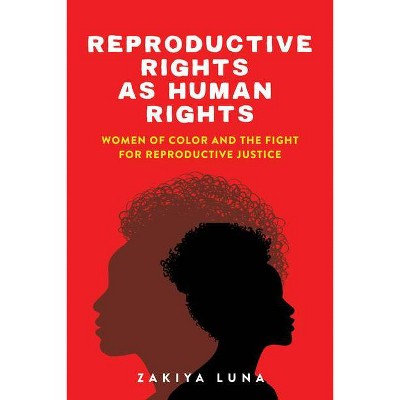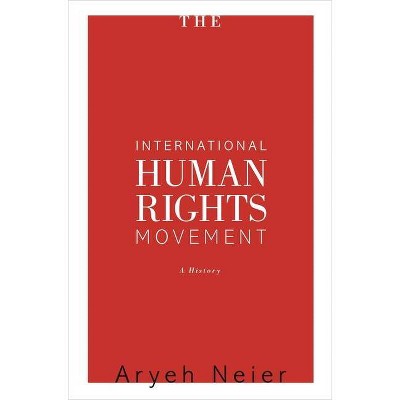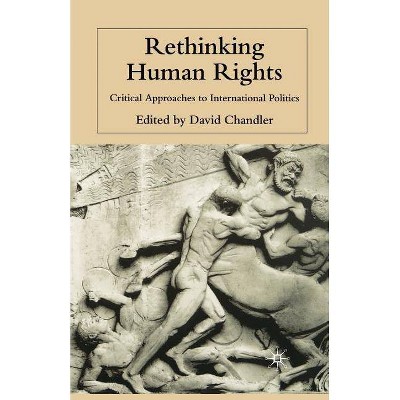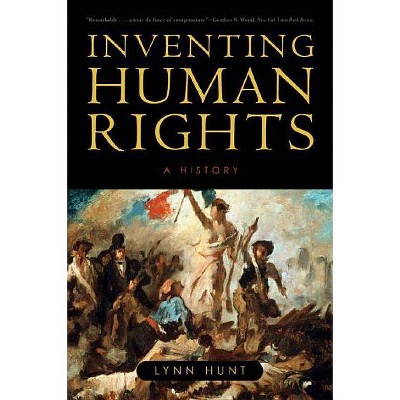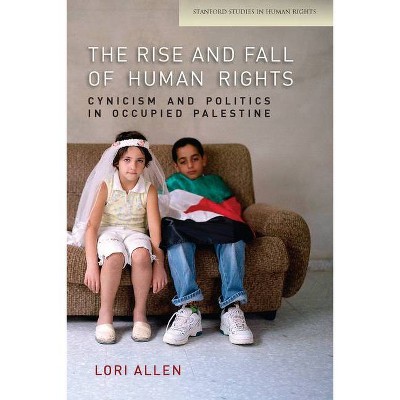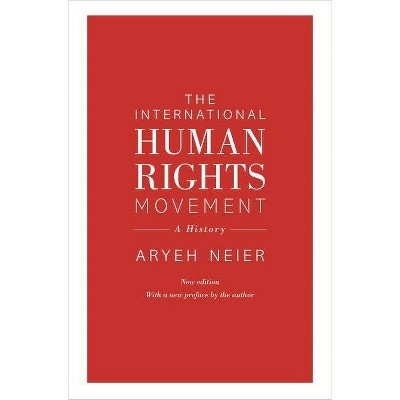Human Rights, Inc. - by Joseph R Slaughter (Paperback)

Similar Products
Products of same category from the store
AllProduct info
<p/><br></br><p><b> Book Synopsis </b></p></br></br><p>In this timely study of the historical, ideological, and formal interdependencies of the novel and human rights, Joseph Slaughter demonstrates that the twentieth-century rise of "world literature" and international human rights law are related phenomena. <p/>Slaughter argues that international law shares with the modern novel a particular conception of the human individual. The Bildungsroman, the novel of coming of age, fills out this image, offering a conceptual vocabulary, a humanist social vision, and a narrative grammar for what the Universal Declaration of Human Rights and early literary theorists both call "the free and full development of the human personality." <p/>Revising our received understanding of the relationship between law and literature, Slaughter suggests that this narrative form has acted as a cultural surrogate for the weak executive authority of international law, naturalizing the assumptions and conditions that make human rights appear commonsensical. As a kind of novelistic correlative to human rights law, the Bildungsroman has thus been doing some of the sociocultural work of enforcement that the law cannot do for itself. <p/>This analysis of the cultural work of law and of the social work of literature challenges traditional Eurocentric histories of both international law and the dissemination of the novel. Taking his point of departure in Goethe's Wilhelm Meister, Slaughter focuses on recent postcolonial versions of the coming-of-age story to show how the promise of human rights becomes legible in narrative and how the novel and the law are complicit in contemporary projects of globalization: in colonialism, neoimperalism, humanitarianism, and the spread of multinational consumer capitalism. <p/>Slaughter raises important practical and ethical questions that we must confront in advocating for human rights and reading world literature--imperatives that, today more than ever, are intertwined.</p><p/><br></br><p><b> Review Quotes </b></p></br></br><br>. . . Seamlessly moves between discussions of philosophy, history, literary criticism, politics, and policy to support an original and compelling argument.-- "--Journal of Human Rights"<br><br>. . .this is a tremendously exciting book, leaping adroitly between literature, history, politics and philosophy. . .-- "--M/C Reviews"<br><br>The author clearly prefers depth and density--the argument is approached from multiplace angles, and nailed down tightly at every turn--and these qualities mark the book's dedication to rigorous scholarship.-- "--H-Net Book Review"<br><br>"Slaughter provides a trenchant analysis of the normative discourse of human rights by focusing attention on the links between the literary form of the Bildungsroman and international human rights law. Imaginative and wide-ranging, Human Rights, Inc. contributes decisively to the literature on the international English-language Bildungsroman, and to law-and-literature studies generally."<b>-----Marc Redfield, <i>Claremont Graduate University</i></b><br><br>Human Rights Inc, is one of the most intense and intelligent reflections on the relation between the novel and human rights. But it is also a model of how students and scholars of literature can respond to the great humanitarian crisis of our time and transform the culture of human rights itself.<b>-----Simon E Gikandi, <i>Princeton University</i></b><br><br>Human Rights, Inc. is a book of huge erudition that effortlessly and elegantly combines history, literary theory and political philosophy. Joseph Slaughter compellingly argues that human rights operate according to the protocols of the market, turning human suffering and poverty into commodities and preparing their subjects for normalised and disciplined life. In a period when human rights and humanitarianism are used as pretexts for war and imperialism, this is an important book that brilliantly challenges the ruling illusions of the era.<b>-----Costas Douzinas, <i>Birkbeck, University of London, author of Human Rights and Empire</i></b><br><br>In Human Rights Ink, Joseph Slaughter reads the Bildungsroman as the "novelistic wing of human rights," persuasively arguing that both formations share a telos of incorporation. With a magisterial command of human rights discourse and sustained theoretical acumen, Slaughter offers dazzling readings of contemporary novels that are indebted to, haunted by, and in conversation with the Bildungsroman form. Doing so, he suggests how the reading of Bildungsroman becomes part of the process by which contemporary readers are incorporated imaginatively into a global imaginary of universal rights and responsibilities. And he explores how postcolonial writers test the form's limits, open its ambiguities, and reject its terms, as they represent the trauma of histories of violence. This book will be obligatory reading for anyone interested in the intersection of law and literature.<b>-----Sidonie Smith, <i>University of Michigan</i></b><br><br>Joseph Slaughter has written a bold, imaginative, visionary book. It is at the cutting edge of interdisciplinary legal scholarship. It offers a new and persuasive account of the relationship of law and literature while at the same time articulating a troubling and provocative account of the impact of human rights policies. This book is a must read.<b>-----Austin Sarat, <i>Amherst College</i></b><br><br>Written in the tradition of Raymond Williams, Luka(accent over A) cs, Ian Watt and Edward Said, the study . . . extracts a fresh approach to what might be called 'the narrative human.' . . . It constructs its paradigm around a powerful thesis and demonstrates its points with clarity, consistency and intellectual nuance. . . . The tone is both sophisticated and accessible. . . . useful in courses that deal with the history of the novel, literature and human rights, and new paradigms of comparative literary internationalism.<b>-----Emily Apter, <i>New York University</i></b><br><p/><br></br><p><b> About the Author </b></p></br></br><br><strong>JOSEPH R. SLAUGHTER</strong> is Associate Professor of English and Comparative Literature at Columbia University.<br>
Price History
Cheapest price in the interval: 40 on November 8, 2021
Most expensive price in the interval: 40 on December 22, 2021
Price Archive shows prices from various stores, lets you see history and find the cheapest. There is no actual sale on the website. For all support, inquiry and suggestion messages communication@pricearchive.us
